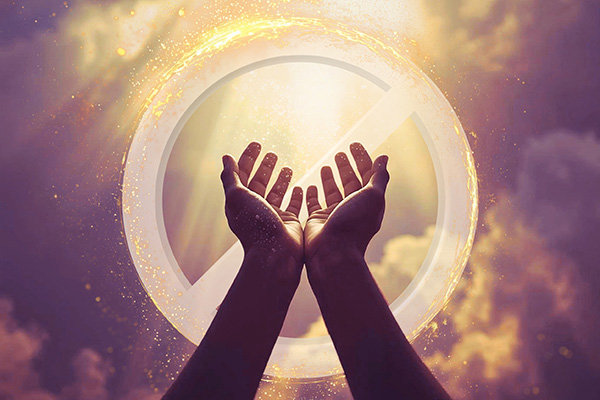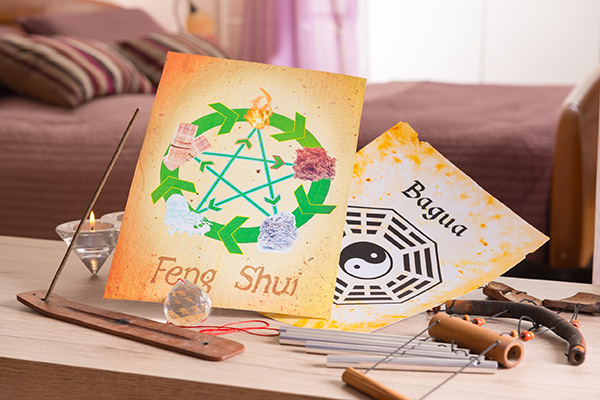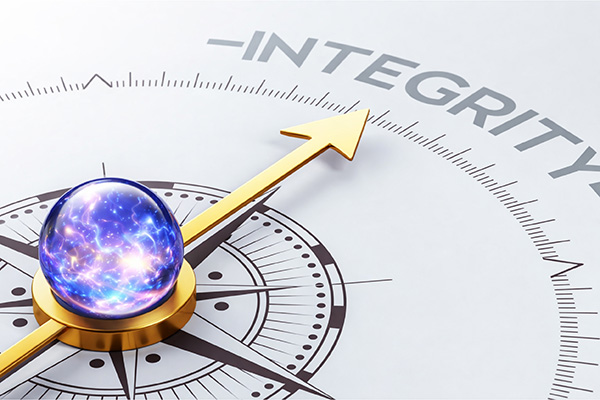spiritual traditions
The Scorching Year Of The Yang Fire Horse
 Today is the first day of the 2026 Chinese Lunar New Year, and with it the Fire Horse year begins, setting a faster and more intense pace for the months ahead.
Today is the first day of the 2026 Chinese Lunar New Year, and with it the Fire Horse year begins, setting a faster and more intense pace for the months ahead.
The Year of the Fire Horse brings a powerful mix of independence, urgency, and honesty. The Horse is known for its need for freedom, movement, and self direction. When combined with the Fire element, those qualities become stronger and harder to ignore.
This year will push us to stop waiting, or hesitating, or pretending that situations are fine when they are not.
Unlike the cautious Metal Horse or the steady Earth Horse, the Fire Horse is not about careful delay. It favors action. It rewards people who are willing to make decisions and take responsibility for the direction of their lives.
This makes 2026 a year that supports bold changes, clear boundaries, and personal independence.
In many cultures, the Horse symbolizes travel, progress, and the drive to move forward. It is associated with vitality and the desire to explore new territory, both physically and emotionally.
This year invites you to look honestly at where you feel restricted and where you have outgrown your current circumstances. It encourages you to take steps toward a life that feels more honest and more self-directed.
Why Love Feels Different Around Valentine’s Day
 Valentine’s Day is a romantic time of flowers and gifts, candlelit dinners, and declarations of love for many people.
Valentine’s Day is a romantic time of flowers and gifts, candlelit dinners, and declarations of love for many people.
But beyond the red hearts and love language gestures, many also feel a curious shift in their emotional state during this time. For many people love feels more intense, more revealing, or even more confusing this time of the year.
Why does this happen?
From a spiritual and astrological perspective, February carries unique energetic patterns that directly influence our emotional awareness and relationships. While Valentine’s Day shines a spotlight on romantic love, the entire month operates like a cosmic mirror, quietly revealing the truths beneath our connections.
It’s not just about Cupid’s arrow, it’s about clarity, emotional timing, and spiritual alignment.
Valentine’s Day did not begin as a holiday celebrating modern romance. Historically, February 14th was observed as a Christian feast day honoring Saint Valentine, who was associated with devotion and commitment in early traditions.
Over time, the day became associated with romantic love in medieval European culture. Writers helped solidify the notion of Valentine’s Day as a day for expressing affection and making heartfelt promises to a loved one.
Are You Erasing Your Blessings?
 The unselfish gifts of our time, money, and resources as well as our labors of love bring us many blessings in this lifetime and the next.
The unselfish gifts of our time, money, and resources as well as our labors of love bring us many blessings in this lifetime and the next.
When we are kind and generous to others, we are also showered with good fortune in return. We know this from the ‘golden rule’ of ‘do unto others’ found in many religions and spiritual traditions.
Buy I have read for many clients over the years who are kindhearted and loving people, but complain about their life being very difficult and deprived. They never have enough money, or they cannot find love, or health and well-being seem to evade them. “I am always helping others, but I get nothing in return,” they might say.
Why is this the case? Why are these generous, caring people not being blessed more often for their good deeds?
Well, my guides have made the spiritual cause of this very clear to me. It is my understanding that we do not only add items of charity and compassion to the list of entries on our ‘chalkboard,’ but we also delete or erase them!
You see, when we do a good deed, it gets added to our list of potential ‘return blessings.’ But, if we go around bragging about it, boasting, showing off, telling people how generous or kind we have been, those good deeds become nullified, neutralized, erased. It loses its metaphysical power and spiritual meaning. It can no longer bless us in return.
Feng Shui Your Home For A Happier, Peaceful Life
 I am very much into how our thoughts and feelings help create our future. However, it needs to be asked what external factors affect those thoughts and feelings in the first place, such as our environment, for example. Therefore, the ‘Queen of Clutter’ (that being myself) would like to discuss how Feng Shui could help you attract better fortune into your life. Feng Shui is an ancient art from China, which involves balancing energies in any particular place. Here is how you can do it.
I am very much into how our thoughts and feelings help create our future. However, it needs to be asked what external factors affect those thoughts and feelings in the first place, such as our environment, for example. Therefore, the ‘Queen of Clutter’ (that being myself) would like to discuss how Feng Shui could help you attract better fortune into your life. Feng Shui is an ancient art from China, which involves balancing energies in any particular place. Here is how you can do it.
Begin With The Bagua
A bagua map (also called pakua) consists of nine squares, each one symbolizing an essential part of a balanced life. This map can be used in any room in your house, as a guide to finding the right area for positioning things.
You see, particular spots in any given room and particular objects contain the best energy possible, and a Bagua map will help you pinpoint these spots. All you need do is align the bottom part of your bagua map with the entrance to your room, and arrange things in their proper place thereafter.]
Get To Know Your Map
Should you be serious about using Feng Shui effectively, then understanding the bagua and what each section of it represents, is vital to your future success with this science. Quite simply, there is no other way than by taking your time and applying due consideration to the process of learning. In doing so, you should reap immense rewards, achieving a balanced and happier environment, and therefore a happier more balanced you.
The Difference Between Soul Rescue And Soul Retrieval
 In shamanic and spiritual traditions, soul recovery practices are based on the understanding that a person’s soul essence or ‘life force’ can become fragmented or lost due to trauma.
In shamanic and spiritual traditions, soul recovery practices are based on the understanding that a person’s soul essence or ‘life force’ can become fragmented or lost due to trauma.
While these two shamanic arts are closely related and often assumed to be the same practcie, they refer to different contexts of healing. There is a subtle, but key difference.
Soul retrieval is the most common term used in modern shamanism and it is based on the idea of soul loss.
When a person experiences a severe physical or emotional trauma, such as an accident, abuse, grief, or a difficult breakup, a part of their vital essence may abandon the body to survive the experience. This is essentially a spiritual survival mechanism, similar to dissociation in psychology.
This disassociation might be related to the trauma of a car accident or extreme injury, or perhaps a memory of a time in someone’s life when an attribute of their soul felt threatened or fearful.
Other typical examples include physical, sexual or emotional abuse as a child; a feeling of abandonment after the death of a relative; financial ruin; nearly dying; or loss of a job.
Someone suffering from this kind of soul loss might feel “spaced out,” numb, incomplete, or like they are watching their life from the sidelines. Chronic depression or a sense that “I haven’t been the same” since the traumatic event are common indicators.
What Horses Teach Us About Freedom And Personal Power
 Nature is a great place to go when we need to think clearly, feel peaceful, and get back to a healthy balance. It is even better if this includes the opportunity to watch animals in their natural environment.
Nature is a great place to go when we need to think clearly, feel peaceful, and get back to a healthy balance. It is even better if this includes the opportunity to watch animals in their natural environment.
Animals also carry their own special spiritual wisdom that can add value to our lives if we pay attention.
When I watch horses move freely, it reminds me to honor my own path, trust my instincts, and move forward with grace.
In mythology, it is revered in many forms: as the ethereal Unicorn, the winged Pegasus born from Medusa’s blood, and Sleipnir, Odin’s magical eight-legged steed from Norse mythology.
Horses hold a deeply symbolic place in many cultures, often representing freedom, strength, spirit, and connection between realms. As we move into the Chinese Year of the Horse, these energies feels particularly relevant.
In many Indigenous traditions, especially among the Plains Nations of North America, the horse is seen not as an animal to be used as a tool, but as a “relative” and a sacred member of the Horse Nation.
Referred to by names such as the Lakota Šúŋkawakȟáŋ, meaning “Holy Dog” or “Mysterious Dog”, the horse is seen as a spiritual gift from the Great Spirit or the Thunder Beings.
Why Integrity Is Non-Negotiable In Psychic Reading
 I often come across psychic-related news stories that just baffle me as a spiritual person. They all have one thing in common: regular people who lose a lot of money, often in cryptocurrency scams, after trusting a fake psychic or fortune-teller.
I often come across psychic-related news stories that just baffle me as a spiritual person. They all have one thing in common: regular people who lose a lot of money, often in cryptocurrency scams, after trusting a fake psychic or fortune-teller.
In a bunch of cases recently, people were encouraged to invest in cryptocurrencies or other investment schemes over the course of weeks or months. Whenever they had any doubts, they were reassured and encouraged to keep investing.
But when they tried to withdraw their money, they found that it was all gone. The money was never invested, the platforms were fake, and the people they had trusted were no longer available.
These stories often end with victims feeling embarrassed and confused about how they got drawn so deeply into such a scam.
The so-called “psychic” usually operated under a fake name. They weren’t linked to any reputable platforms, and had no online presence or reputation to speak of. They usually disappear as soon as the authorities get involved.
What bothers me most about these stories is the lack of integrity and the misuse of trust. No ethical psychic practitioner is going to advise clients that way.
My first reaction is always: How can someone do this to another person? Then, I can’t help but also wonder: How could someone be so gullible and irresponsible to follow such questionable financial advice?